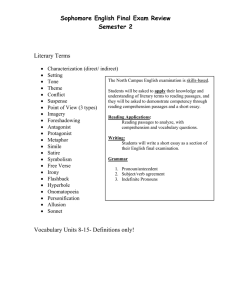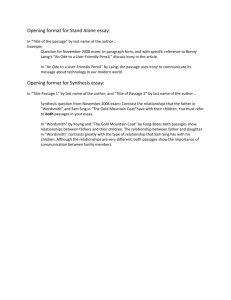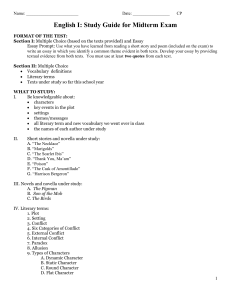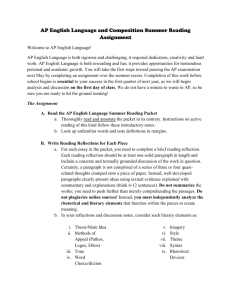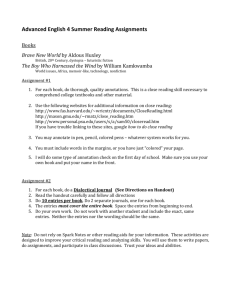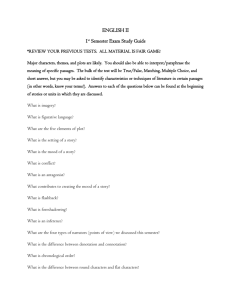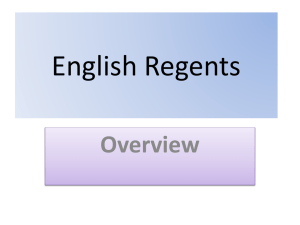English 2: American Literature
advertisement
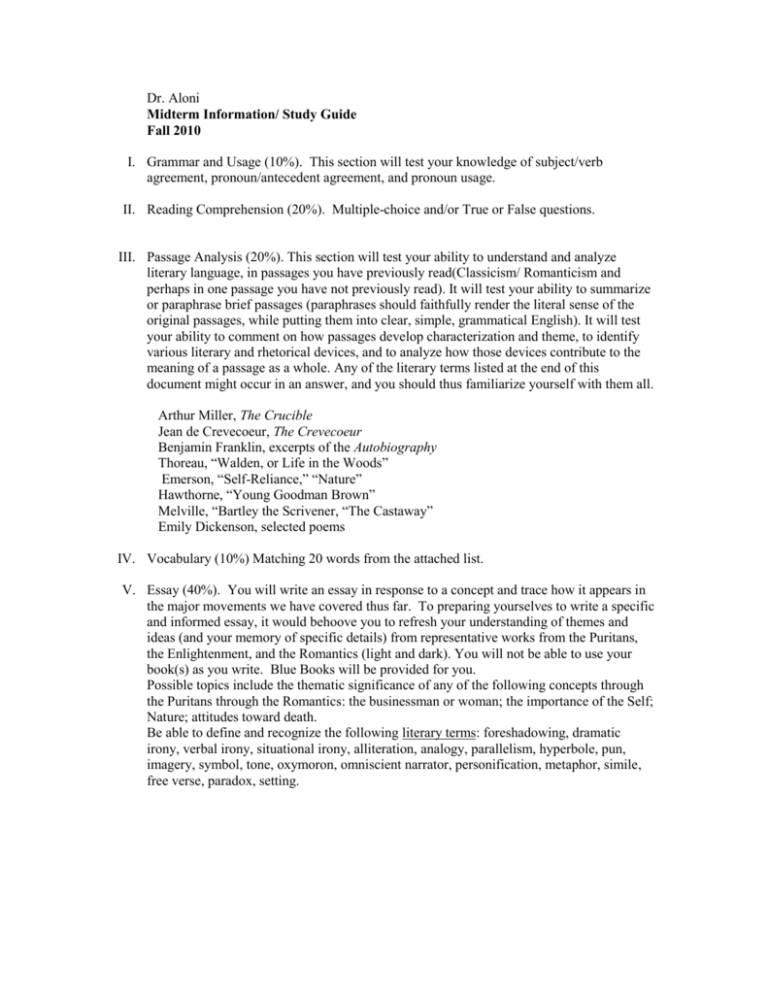
Dr. Aloni Midterm Information/ Study Guide Fall 2010 I. Grammar and Usage (10%). This section will test your knowledge of subject/verb agreement, pronoun/antecedent agreement, and pronoun usage. II. Reading Comprehension (20%). Multiple-choice and/or True or False questions. III. Passage Analysis (20%). This section will test your ability to understand and analyze literary language, in passages you have previously read(Classicism/ Romanticism and perhaps in one passage you have not previously read). It will test your ability to summarize or paraphrase brief passages (paraphrases should faithfully render the literal sense of the original passages, while putting them into clear, simple, grammatical English). It will test your ability to comment on how passages develop characterization and theme, to identify various literary and rhetorical devices, and to analyze how those devices contribute to the meaning of a passage as a whole. Any of the literary terms listed at the end of this document might occur in an answer, and you should thus familiarize yourself with them all. Arthur Miller, The Crucible Jean de Crevecoeur, The Crevecoeur Benjamin Franklin, excerpts of the Autobiography Thoreau, “Walden, or Life in the Woods” Emerson, “Self-Reliance,” “Nature” Hawthorne, “Young Goodman Brown” Melville, “Bartley the Scrivener, “The Castaway” Emily Dickenson, selected poems IV. Vocabulary (10%) Matching 20 words from the attached list. V. Essay (40%). You will write an essay in response to a concept and trace how it appears in the major movements we have covered thus far. To preparing yourselves to write a specific and informed essay, it would behoove you to refresh your understanding of themes and ideas (and your memory of specific details) from representative works from the Puritans, the Enlightenment, and the Romantics (light and dark). You will not be able to use your book(s) as you write. Blue Books will be provided for you. Possible topics include the thematic significance of any of the following concepts through the Puritans through the Romantics: the businessman or woman; the importance of the Self; Nature; attitudes toward death. Be able to define and recognize the following literary terms: foreshadowing, dramatic irony, verbal irony, situational irony, alliteration, analogy, parallelism, hyperbole, pun, imagery, symbol, tone, oxymoron, omniscient narrator, personification, metaphor, simile, free verse, paradox, setting.
